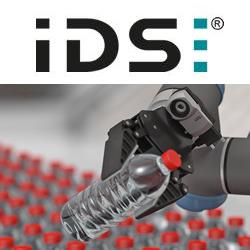How AI is Changing the Future of Supply Chain Costs
.jpg)
Little has the potential to power cost-cutting innovations quite like artificial intelligence technology. These tools applied to supply chain management can streamline processes and improve the safety and efficiency of the companies that employ them.
McKinsey reported that the majority of surveyed businesses experienced higher revenues through AI adoption, with 44% claiming cost reductions. For supply chains, the rate of cost reduction is even greater.
AI brings efficiency through big data analytics and performance insights on an unprecedented scale. With this power, AI is advancing supply chains for a cleaner, more cost-effective future. Preparing for this future starts with understanding AI implementation in the present.
How AI is Changing Supply Chains Now
Artificial intelligence is one of the technologies driving business advancement in all industries. This tool — defined simply as a computational process designed to complete a task that would otherwise require human intelligence — is often what allows us to harness the power of big data. The sea of data generated by consumers engaging with the internet requires a powerful tool to cultivate, categorize, and analyze all of it. That’s where AI comes in.
AI is both powered by data and maximizes the potential of data collection. This is more essential than ever facing the fluctuating market in the aftermath of the coronavirus pandemic. Modern businesses have had to restructure supply chains through data-driven insights to mitigate risk. Restructuring efforts include using AI to automate processes and inform business practices through predictive analytics.
Many companies have already had great success in implementing AI into their supply chains. Here are some examples:
UPS and the ORION System
Shipping giant UPS makes use of AI through their On-Road Integrated Optimization and Navigation (ORION) system. This tool crunches the data surrounding vehicles, drivers, customers, and more to provide drivers ideal routing information in real-time. As a result, cost savings can accumulate through reduced fuel use and wear-and-tear on vehicles. UPS estimates every mile shaved off from daily driver routes can result in a $50 million savings for the company.
Lineage Logistics
Lineage Logistics is in the business of food preservation and refrigeration during transportation. Its supply chain relies heavily on how well orders are packed and managed. Fortunately, their AI system provides predictions as to when orders arrive and leave a warehouse. This enables smart placement during freight loading so that food stays fresh and cold throughout the delivery. Lineage Logistics has reported a 20% efficiency increase as a result, meaning less waste and more money saved.
These are just two examples of efficient use of AI in modern supply chains. But the implications and potential cost-savings go far beyond individual companies.
The Potential Benefits of AI in Supply Chain
The avenues through which AI can provide savings across supply chains are many. Right now, industrial AI is revolutionizing manufacturing through all kinds of quality assurance and predictive maintenance processes. By extending these tools into any business’s supply chain, cost efficiency can be boosted in everything from employee and driver safety to freight management.
The following are only a few of the areas where AI can play a role in cost reduction:
- Safety
AI is powering the emergence of autonomous vehicles, smart and driverless freight transportation methods that can react with speed and awareness that no human could match. These vehicles on the road will likely mean fewer accidents and reduced costs through liability and damages, leading to greater safety for anyone on the road.
- Asset Maintenance
Insightful data-gathering tools like Internet of Things (IoT) devices are now standard in supply chain management. AI analytics, alongside the data generated by IoT, allows for greater awareness of machine conditions. In turn, companies can more carefully maintain and manage their fleets to reduce overall maintenance and downtime costs.
- Supply Line Predictions
COVID-19 proved that supply chains need flexible, adaptive techniques to deal with supplier fluctuations. AI systems and dashboards can keep supply chain managers up-to-date on client statuses to reduce miscommunication and delays in service. This can translate to broader networks of suppliers and even supply routes localized across various regions.
- Energy Efficiency
With IoT insights and data analytics, energy efficiency is a simple step forward. Through more efficient routing processes, fleet idle time and miles driven can be reduced. Meanwhile, insights into all kinds of equipment and labor processes can be optimized to keep energy expenditures at a minimum. All this translates into massive savings.
- Freight Management
Overall, AI improves the ability of any supply chain manager to keep freight optimized for the best results. As evidenced in the Lineage Logistics example, this process means better freight packing to avoid waste and improve delivery times. Additionally, routing and inventory management, in general, can experience efficiency-boosting innovations.
With these and more opportunities to set your supply chain up for greater savings, the positive effects will ripple through to vendors, consumers, and the larger world. Ultimately, AI can play a substantial role in making the future a brighter and cheaper place to live. This stands to benefit all of us.
A Brighter, Cheaper Future
As AI allows for more and more cost-saving innovations across supply lines, companies stand to gain from more than just cheaper business practices. Freight and transportation account for 30% of volatile organic compound emissions in the environment. With improved efficiency across supply chains, we can cut down on these harmful emissions while making financial gains.
Savings can also be passed on to consumers. Cheaper goods acquired through more sustainable practices can boost marketing strategies and serve as a win at every link in the supply chain.
AI is changing the supply chain industry. While the term artificial intelligence can still invoke fears and uncertainty, the benefits seen already point toward a cleaner and more cost-efficient world with the help of AI. Implement this powerful technology in your own supply chain to begin reaping the rewards.
 Jori is an experienced freelance writer from the Northwestern U.S. She covers a wide range of subjects but takes a particular interest in covering topics related to Technology, Artificial Intelligence, Machine Learning, and Cybersecurity. You can follow Jori on Twitter and LinkedIn.
Jori is an experienced freelance writer from the Northwestern U.S. She covers a wide range of subjects but takes a particular interest in covering topics related to Technology, Artificial Intelligence, Machine Learning, and Cybersecurity. You can follow Jori on Twitter and LinkedIn.
Comments (0)
This post does not have any comments. Be the first to leave a comment below.
Featured Product

